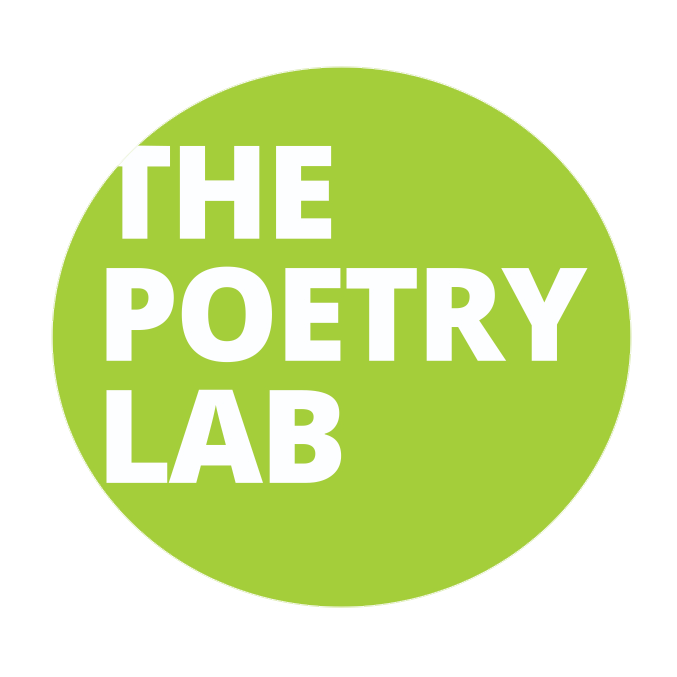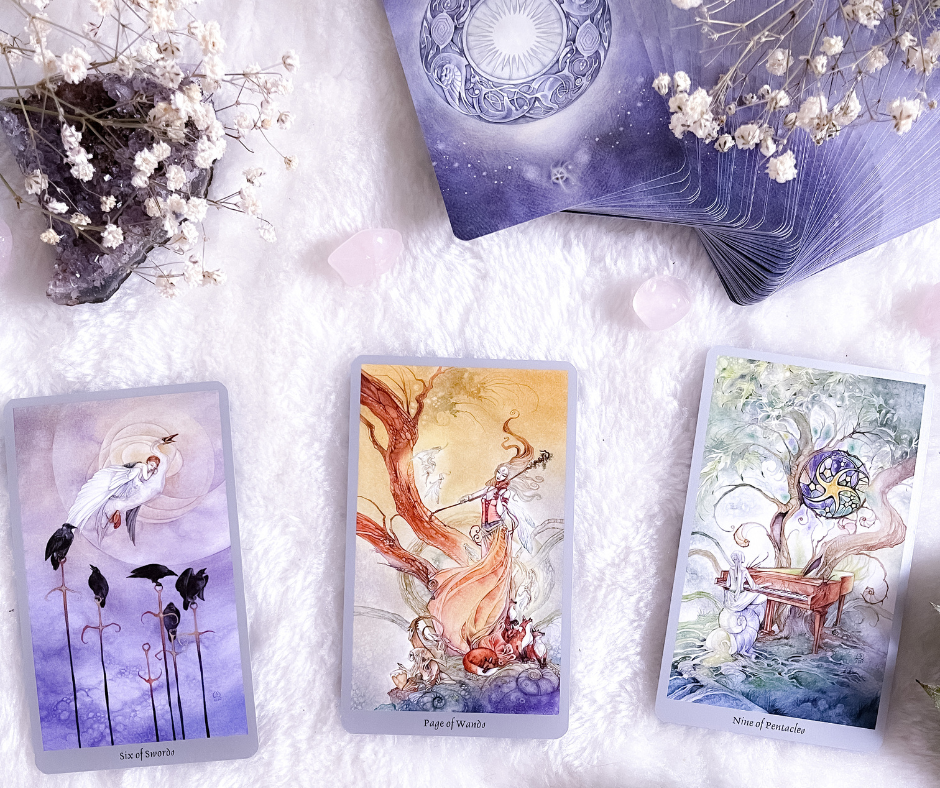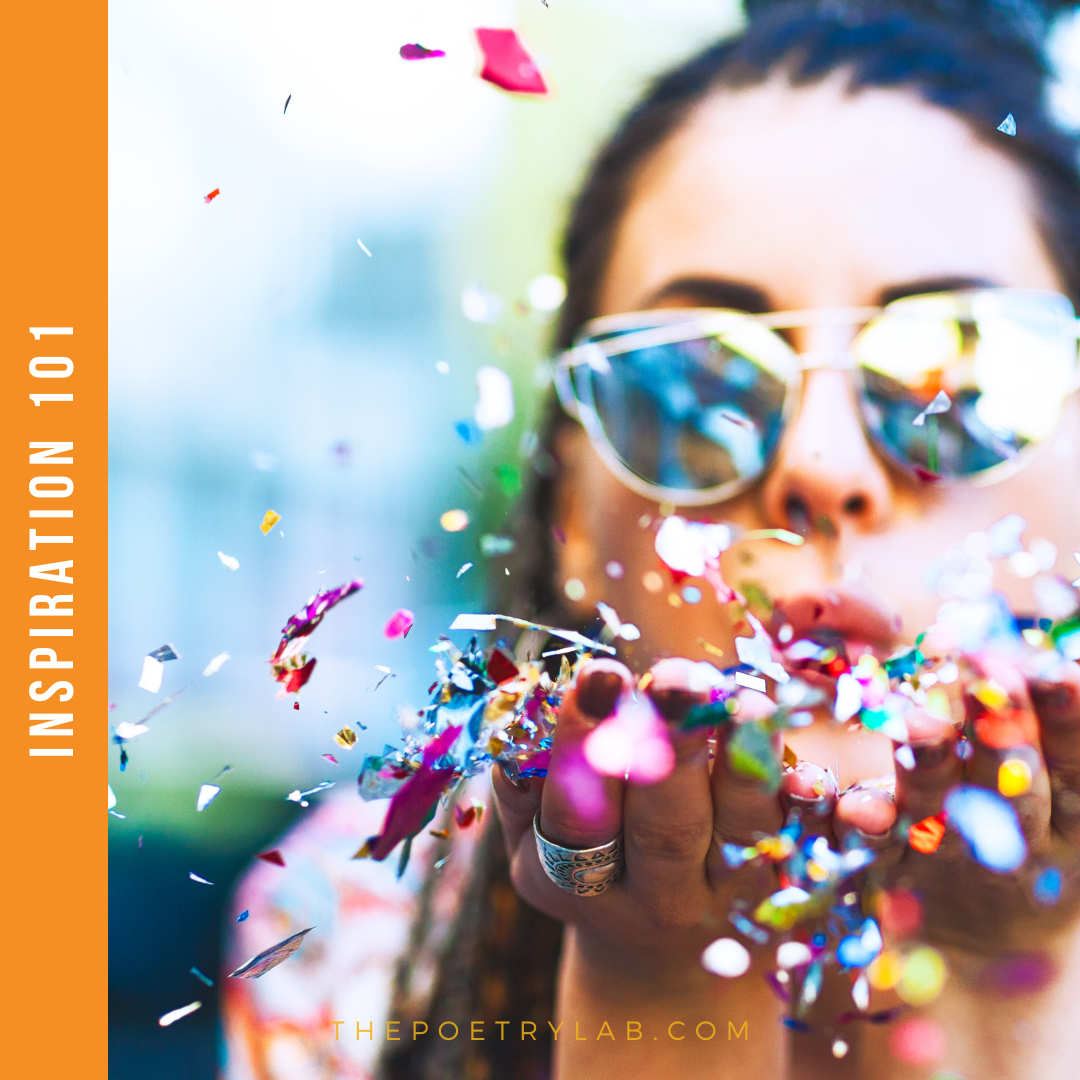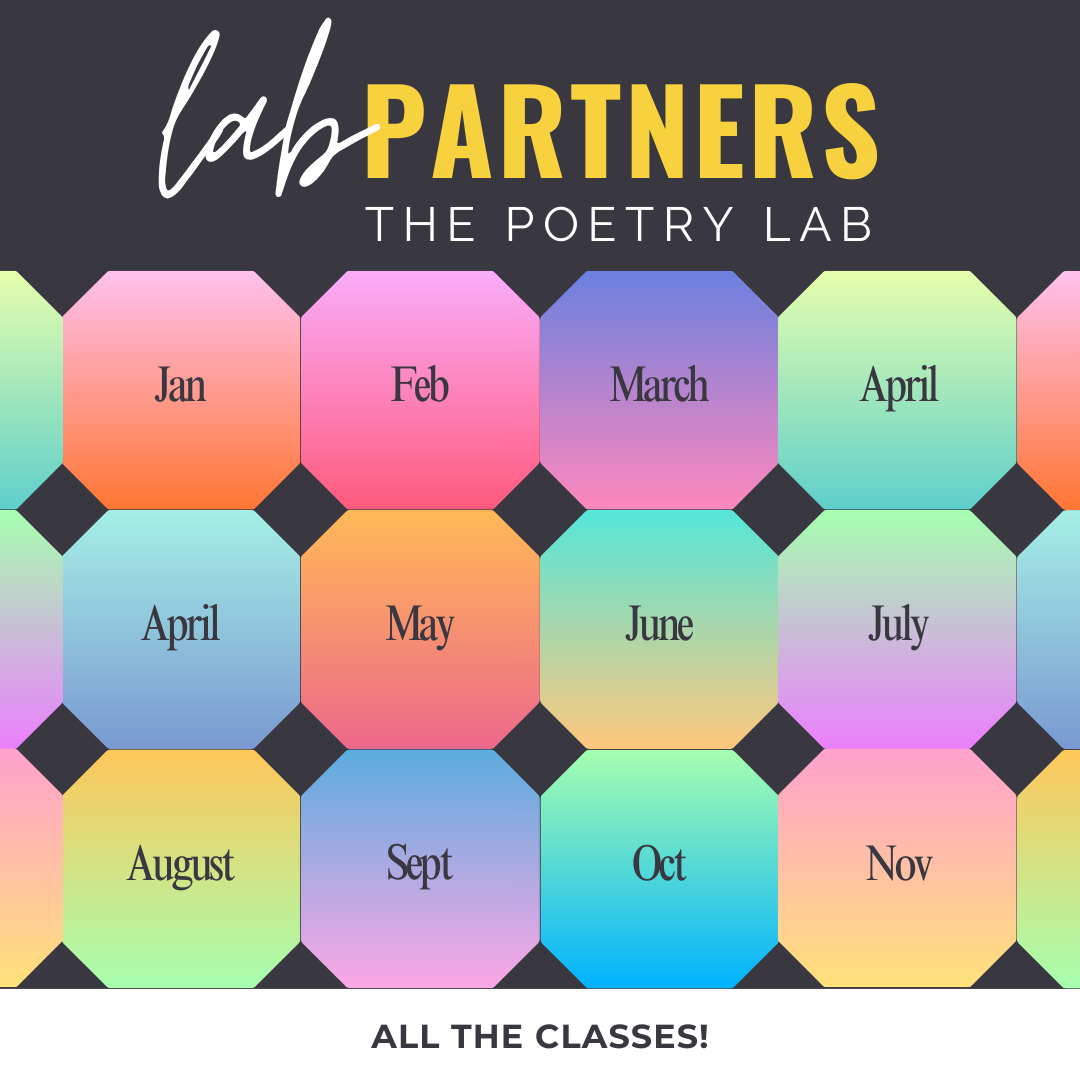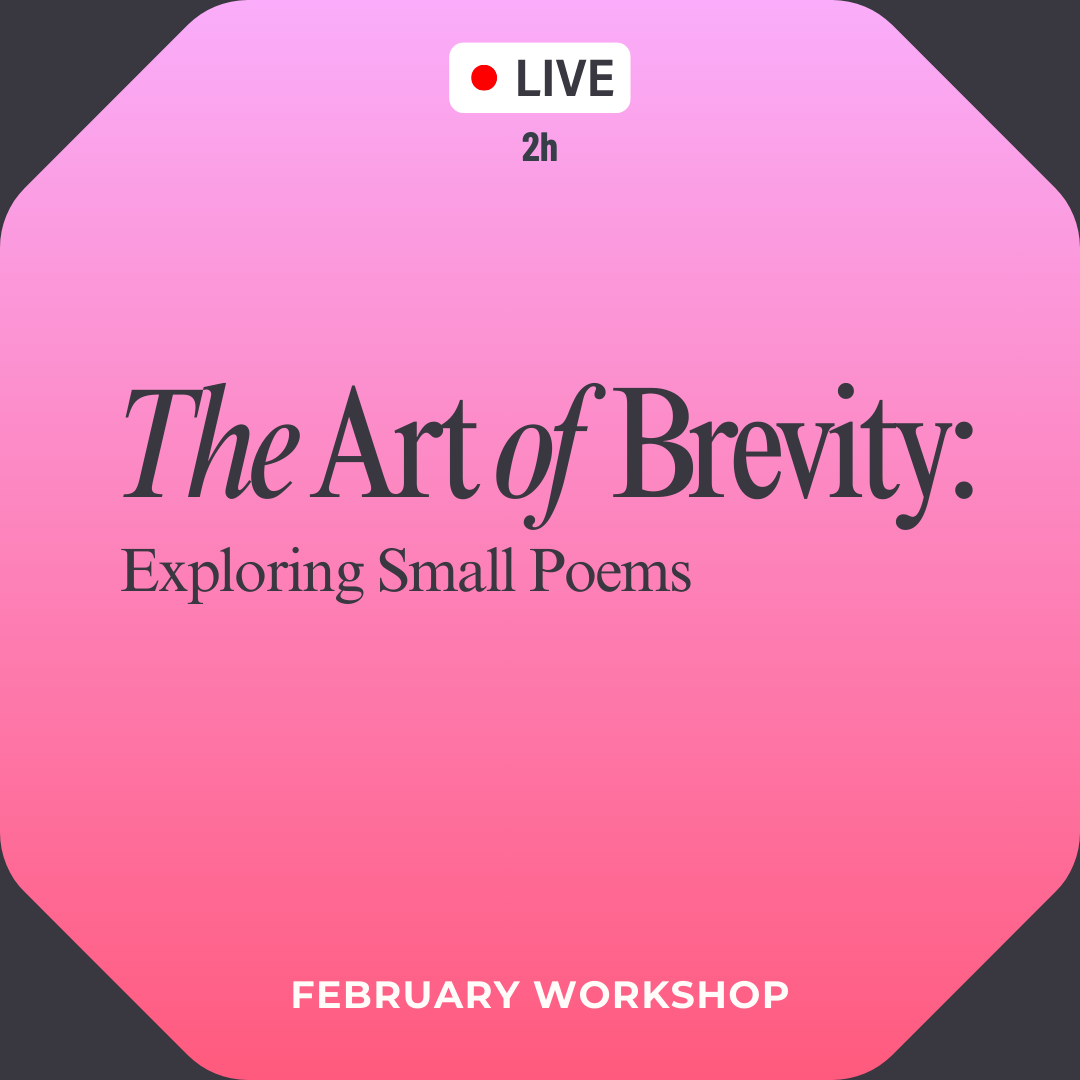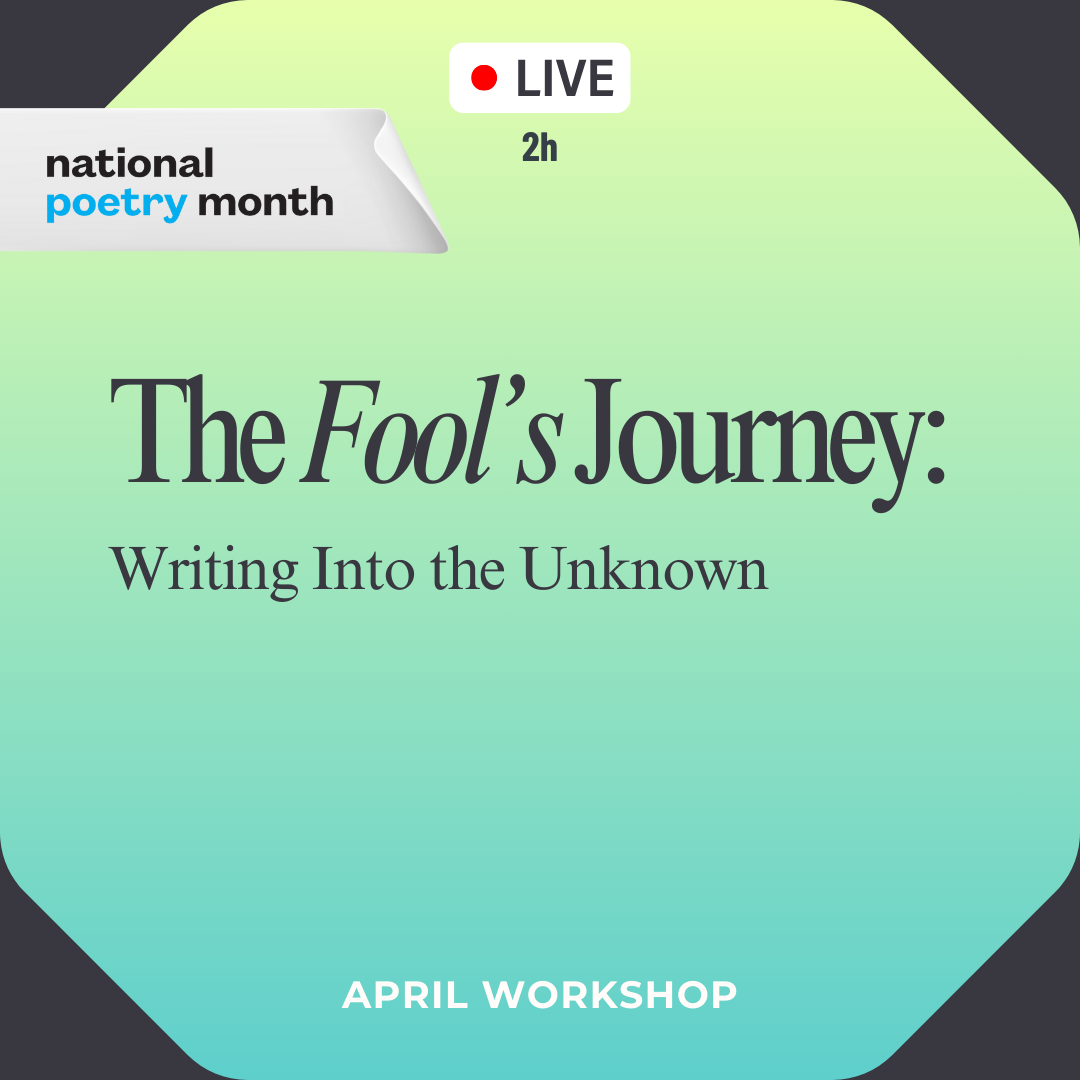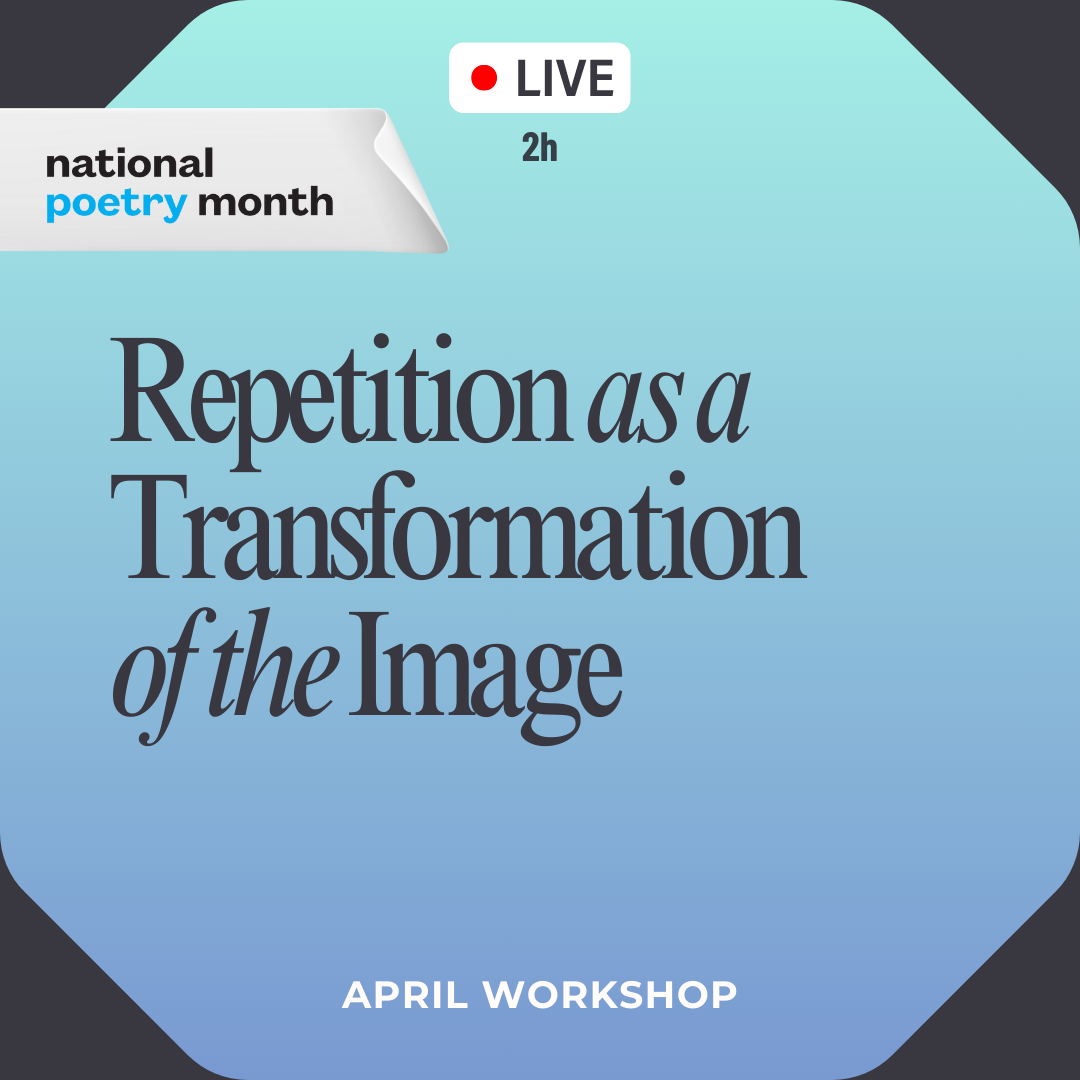Rewrite the Stars: Tarot as a Tool for Rebirth
Tarot can be an incredible tool for rebirth. In my last article, we explored persona poetry—which, in many ways, affords an escape from your current identity or circumstance. Just as tarot can be useful in crafting creative personas, so too can it aid in reimagining your identity.
Birth has been on my mind a lot lately, poet—birth and rebirth, both literally and figuratively speaking. I suppose it’s in part because I gave birth to a son in September. His birth was, in many ways, a rebirth for me: My other child is just shy of ten, so I find myself starting my mothering journey anew at nearly forty years old.
Pregnancy, birth, and postpartum can do strange, beautiful, and terrible things to a person. Hormones are no joke, nor is the experience of childbirth in whatever form it takes. But even after both your body and your routine have settled into a new balance, your entire identity is subject to change as you redefine yourself within the boundaries of parenthood. I have found this to be just as true the second time around, despite having a decade of experience under my belt.
When I decided I wanted another child, I was met with a lot of skepticism. “You really want to be back to diapers?” was the most frequently asked question. Friends told me I’d no longer be able to enjoy big-kid outings with my daughter or be able to go on family vacations or spend time with my husband, that homeschooling would become impossible, and that my writing would suffer. (We’re a few weeks in and none of these have proven to be true, if you’re worried.)
Throughout my pregnancy, I wondered who I would be on the other side of birth. And now that my son is here, I find myself wondering who I want to be instead.
You might be asking yourself what exactly this has to do with poetry. Poetry is, in my experience, the most deeply intimate form of writing, even more so than long personal narratives or memoirs. Poetry succinctly and vividly captures the soul of a person. It lays bare our aspirations and intentions, our fears and traumas, our secrets and dreams.
With that in mind, come with me on a journey of self discovery, using the twin tools of writing prompts and tarot.
Welcoming Reinvention
Reinvention comes naturally to me. I enjoy change, both subtle and seismic. Walt Whitman’s words resonate with me deeply:
“Do I contradict myself?”
Very well then I contradict myself,
(I am large, I contain multitudes.)”
Read the entire 1892 version of “Song of Myself”↗
I am used to big reactions from family, friends, and acquaintances when I go through a marked sea change—when I do more than just change my hair color, when I pick up a new career or make another cross-country move. And in those reactions—in questions people ask me—I often sense a deep fault line of self doubt that, really, has nothing to do with me.
How often do we lock ourselves into a singular identity, long after it has ceased to serve our full being? Why do we read the stars only once and let them decide the totality of our fate?
I sometimes wonder how many incredible writers and artists we’ve missed out on because of the fear of change. There is so much pressure to achieve some kind of consistency at such a young age, to the point that many people assume it’s too late to pick up a pen or a paintbrush—when, in reality, life experience can be fertile ground for creativity.
For those of us who already identify as writers, we sometimes get stuck in a narrative we’ve created for ourselves about our work. Maybe you published a poem as a teenager and have convinced yourself you peaked years ago?
Perhaps you only write novels—and despite the fact that you can never find time to finish one, you won’t let yourself try your hand at short stories?
Maybe you find yourself reading the work of other writers and feeling like you’ll never compare—or maybe you have not picked up a book in months and feel impossibly out of touch with the written word?
Perhaps you haven’t scribbled more than a few lines of poetry in recent memory, and so you’ve told yourself that season of your life has passed?
Today I am telling you all of these narratives are false. Whether you’re feeling stuck as a writer or in some other aspect of your life, it is never too late to rewrite your stars.
Tarot for Rebirth
Tarot is a powerful tool for self-reflection, one that can help us to better understand ourselves or to adjust our position in a given situation.
A tarot reading that explores questions of identity—your secret desires and fears, your higher calling, your current obstacles—with an experienced reader can be an excellent starting point for remapping your fate and redefining your sense of self. But if you don’t have a reader you trust, or if doing a full-blown reading for yourself seems intimidating—well, that’s understandable, if you’re already struggling to see yourself in a new light.
As an alternative, I offer you these simple meditations to get you started on a journey to a new you. You don’t have to rely on any mystical intuition or as-yet-undiscovered gifts, and you don’t need any preexisting knowledge of tarot card meanings. If you have a tarot deck and a guidebook, that’s excellent! But you can also use online resources to explore the cards. I like Biddy Tarot, and have heard good things about Tarot!, the Classic 1910 Tarot app.
These meditations may work best with the major arcana, as these cards are more representative of big themes and therefore can speak to a broader sense of self than the minor arcana typically can. The minor arcana may be too specific, depending on what you’re working through. But if you’re more familiar with tarot or if you want to go deeper, consider drawing from both the major and minor arcana as you work through the mediations.
Tarot Meditations for Rebirth
Because we’re all poets here, I’m including a writing prompt with each meditation. Feel free to focus on the ones that best serve your needs rather than trying to tackle all of them.
Meditation #1: You in the here and now
Search the deck for the card that you feel most resonates with how you currently see yourself. You can work off of the card images or (in the case of the major arcana) the names. Are you the High Priestess, keeper of secret knowledge? Do you find yourself in the Tower, struggling to emerge from constant chaos? Does the innocence of the Fool or the uncertainty of the Hanged Man speak to you?
If you find yourself unable to choose just one card, that’s okay! You can choose a few that represent your full sense of self.
Prompt: Look at yourself through the lens of the card(s) you chose. Leaning into the meanings associated with the card(s), write a poem about yourself from an outside perspective.
Meditation #2: Dislikes
Which cards give you the ick? Some cards may evoke strong emotions outside of their actual meanings, like the Devil and Death cards. Others provoke a strong reaction when we dive into what they signify: Consider the conformity of the Hierophant or the heartache of the Three of Swords. You might find yourself reacting negatively to a card that is neutral or even positive.
Whatever card or cards you choose, ask yourself why they bother you. Do the meanings speak to your shadow self, those aspects of our personality we try to avoid? Do they remind you of a bad experience or of a person you’d rather forget? How do those associations or feelings impact how you see yourself and how you live your life?
Prompt: Do a deep dive into one card that bothers you. Explore the feelings or memories that come up when you sit with that card’s particular meanings. Don’t try to write anything polished: Instead, let the words come out in their rawest form.
(Optional cleansing exercise: Burn the poem or a copy of it afterwards to release those bad energies.)
Meditation #3: The Ideal You
Who do you most want to be? Forget about the logistics of how to get there or whether it’s even a realistic goal. Don’t worry about the approval or judgment of others. Do you want to embody the devil-may-care attitude of your favorite antihero? Do you want to cultivate domestic bliss? Is your goal to become deeply wise? To find balance? To forgive yourself? Do you envision yourself achieving incredible success in your chosen career?
Maybe your ideal self is obviously reflected in a certain card, or perhaps it’s a more nuanced collection of various meanings. Take your time building the person you’d like to be if there were no obstacles in your way.
Prompt: Introduce your present self to your idealized self. How would the two versions of yourself react to one another? Would the current self recognize the idealized self, or are the two identities irreconcilable?
Meditation #4: First steps
Consider the card you picked in meditation #1 and the card you picked in meditation #3. (If you picked multiples, choose just one from each meditation.) What would be the first step in transforming yourself from one card to the other? You can start big or small. Is action required first or a shift in perspective? Are other people involved?
Once you’ve picked a card for the first step, try to pick a card for the second and third step. Keep going as long as it’s useful. Remember that you don’t have to be literal when it comes to this meditation; you can think in terms of themes or emotions if that’s more helpful.
Prompt: Pick one of the steps you’ve identified on the road to transformation. What does it feel like to be in that moment? Is it liberating? Exhilarating? Exhausting? What has kept you from reaching this step—and what will push you to take the next one?
Meditation #5: Obstacles
Choose a card or multiple cards that represent the obstacles you’d face in changing your identity. These obstacles can be negative or positive things: Fear of failure may keep you from trying to reinvent yourself, but so could the responsibilities of a career or home life that you absolutely love.
Are the obstacles practical concerns, like finances? Or are they rooted in belief systems you grew up with, experiences you’ve had, etc.? What can you do to overcome the obstacles you’ve identified—and what’s the worst that could happen if you fail?
Prompt: Pick a card from meditation #3 that most embodies your ideal self (preferably from the major arcana). Write a poem about yourself embodying the identity of that particular card as you face one or more of the obstacles you’ve identified above. (For example: You are the Magician dealing with your family’s disapproval of your decision to move across the country.)
Remember that your poem doesn’t have to be about successfully overcoming the obstacle: It can deal with the fear of failure, or it could be open ended.
Bonus Reading:
If you’re new to tarot and you’ve worked through the above meditations, you might find you’ve gotten fairly comfortable or familiar with your cards. In that case, this three-card reading can help you on your path to rebirth.
Card #1: What is your core identity?
This card represents the central nature of who you are. This is in some ways the “real you.” Regardless of what changes you make in your career, relationships, living situation, or other outward aspects of your identity, this is who you are in your heart of hearts.
(Note: If you pull a card with a negative meaning, it doesn’t mean you’re a bad person. This can indicate a block you have with your identity or fears you harbor about yourself.)
Card #2: What is your higher calling?
Sometimes we know exactly who we want to be; other times, we have only a vague idea coupled with an intense desire for change. In this instance, it can be helpful to consider your higher calling. This can be the “why” that points you in the right direction for your next evolution.
Your higher calling may align with your core identity or contrast with it; similarly, it might resonate with how you see your ideal self or call that identity into question.
Card #3: What do you need to release?
Is something holding you back from change? This card might point to old wounds you carry from past experiences or to self-limiting beliefs surrounding your value, purpose, etc. Do you impose strict expectations on yourself that don’t allow you to explore other identities? Do you worry too much about societal norms or other people’s opinions? Does your current lifestyle not align with who you’d like to be?
If we condemn ourselves to live a less than authentic life in an identity that doesn’t reflect our truest self, how can we expect our poetry to speak to anything real? If we can’t realize our greatest hopes for ourselves—or at least put our all into chasing those hopes to the very ends of the earth—then what creative wellspring can we draw from?
Whether we manage to actualize one ideal self or spend our lives in an endless cycle of rebirth and rediscovery, the mere attempt to redefine ourselves is in and of itself the highest act of creation.
And that, to me, is poetry.
/ related
/ upcoming classes
This article was published on September 9, 2025. Written by:

